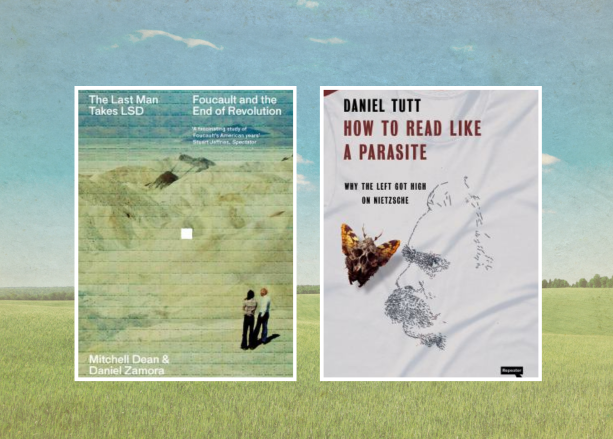These new books critically examine how dominant ideas and power dynamics have influenced our interpretation and application of shared concepts. They question established paradigms and power structures, offering a range of perspectives from sexual wellness and psychology to the history of emotions and the intersection of philosophy, politics, and drug use. They delve into how external forces, such as psychological studies or the experience of grief, can shape one’s sense of self. They also primarily challenge or reframe common beliefs, assumptions, and narratives around these subjects, encouraging us to think critically about the forces that shape our personal and societal narratives.
 Come Together: The Science (and Art) of Creating Lasting Sexual Connections / Nagoski, Emily
Come Together: The Science (and Art) of Creating Lasting Sexual Connections / Nagoski, Emily
“A leading sexual wellness educator, tackles the often misunderstood topic of sex in long-term relationships. Challenging conventional wisdom and harmful assumptions, she explores what truly fulfilling sex looks like through inclusive stories and examples. The book aims to help pairs overcome obstacles like relationship conflicts, gendered beliefs about sex, and body image issues. With insight, humor, and empathy, it offers a radically transformed approach to sex and desire, empowering readers to create lasting, fulfilling sexual connections in their long-term relationships.” (Adapted from catalogue)
 Data Baby: My Life in a Psychological Experiment / Breslin, Susannah
Data Baby: My Life in a Psychological Experiment / Breslin, Susannah
“In Data Baby, Susannah Breslin recounts her extraordinary childhood as a research subject in a renowned 30-year study of personality development at UC Berkeley. Decades later, grappling with an abusive marriage and breast cancer, she investigates how being raised under scrutiny shaped her identity and choices. Her compelling, provocative quest uncovers long-buried secrets behind the study, raising profound questions about whether it truly understood her better than she knew herself. With brave honesty and wit, her universal story explores the tension between allowing technology to define us and discovering our authentic selves in an era of increasing data-driven self-optimization. Her life-changing journey as one of history’s most studied individuals illuminates why we turn out the way we do.” (Adapted from publisher and catalogue)
 Grief is For People / Crosley, Sloane
Grief is For People / Crosley, Sloane
“Sloane Crosley’s poignant memoir explores loss and the complexities of mourning after her closest friend’s death by suicide. With disarming wit and empathy, Crosley embarks on a quest to understand grief, upending conventional narratives and offering a category-defying elegy that resonates deeply in our grief-stricken times. Hailed as one of the most anticipated books of the year, it’s a suspenseful and moving portrait of friendship, family, and the struggle to hold on to the past without being consumed by it.” (Adapted from catalogue)
 The History of Emotions: A Very Short Introduction / Dixon, Thomas
The History of Emotions: A Very Short Introduction / Dixon, Thomas
“Thomas Dixon insightfully traces the complex historical ancestries of emotions ranging from sorrow to love. The states we group as “emotions” today are products of long, varied changes in language, culture, beliefs, and lifestyles. Drawing examples from ancient to modern cultures, including forgotten feelings and the creation of modern emotional regimes, he sheds new light on our present emotions by exploring what historians reveal about their past. He explains key ideas from the history of emotions developed in conversation with psychology and psychiatry, covering concepts like basic emotions, psychological construction, and affect theory. This work demonstrates how the history of emotions is where the histories of ideas, the body, subjectivity, and social/cultural frameworks intersect, resisting simple reduction.” (Adapted from publisher and catalogue)
 How to Read Like a Parasite: Why The Left Got High on Nietzsche / Tutt, Daniel
How to Read Like a Parasite: Why The Left Got High on Nietzsche / Tutt, Daniel
“How to Read Like a Parasite argues that Nietzsche’s philosophy has been whitewashed and stripped of its reactionary political core by translators and academics presenting it as “apolitical”. It contends that Nietzsche’s major concepts like perspectivism, ressentiment, and eternal return are driven by a sophisticated reactionary vision (analysed in their historical context). It discusses left-Nietzscheans like Jack London, Gilles Deleuze, and Huey Newton, making a case for overcoming Nietzsche’s damaging influence on the left by reading and understanding his work critically without falling victim to it.” (Adapted from catalogue)
 The Last Man Takes LSD: Foucault and the End of Revolution / Dean, Mitchell
The Last Man Takes LSD: Foucault and the End of Revolution / Dean, Mitchell
“In May 1975, Michel Foucault took LSD in the desert in southern California. He described it as the most important event of his life, leading him to completely rework his History of Sexuality. His focus now would not be on power relations but on the experiments of subjectivity and the care of the self. Through this lens, he would reinterpret the social movements of May ’68 and position himself politically in France in relation to the emergent anti-totalitarian and anti-welfare state currents. He would also come to appreciate the possibilities of autonomy offered by a new force on the French political scene that was neither of the Left nor the Right: neoliberalism. For this paperback edition, the authors have written an afterword responding to the debate occasioned by the book’s first publication.” (Catalogue)


